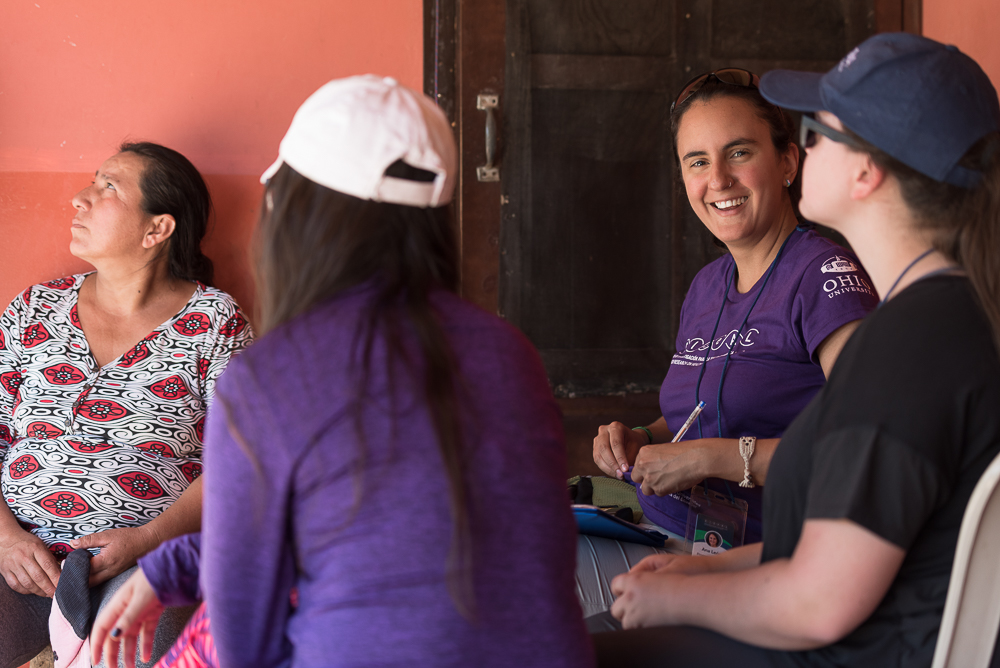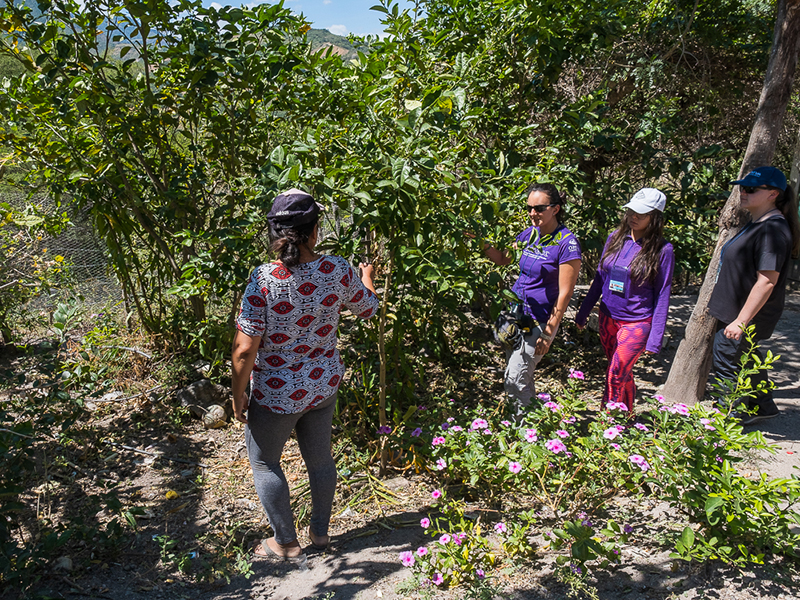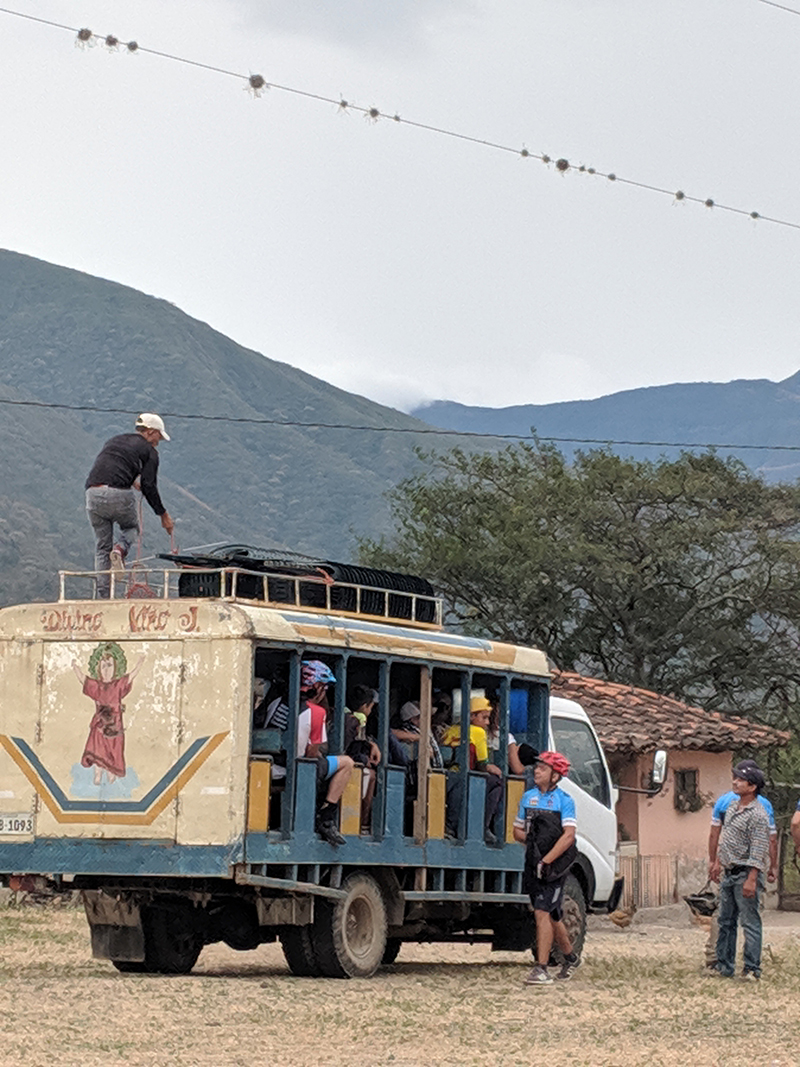By Daniela Grijalva

A few days ago, we introduced our esteemed team member and researcher Ana Carolina León, a premiere Ecuadorian biologist working with our Healthy Living Initiative. Today, we take a closer look at her research within the communities in Loja Province, and hear more of the story and inspiration behind her involvement.
“This project is important because it helps us understand how the economic system works in this area and how something like a household garden can improve the lifestyle of rural families,” says Ana. “A family that grows their own food has the potential to improve their nutrition and gain access to a new source of income. Nowadays, having the capacity to garden is an empowering activity that can bring economic freedom in the long term. ”

In this past year, Ana sought out the opinions of community members in Guara, Chaquizcha and Bellamaria that already had a household garden on how these had changed their lives. “We began eating better, because we were now able to use different herbs like cilantro and parsley in their freshest state,” said one community member. “This contrasts to when we buy it, because by the time it gets down here [to our community], it’s all ragged and depleted and dry, it’s not the same. Now that I have it here and near, I can easily get some and add these herbs to my food.” Other community members reported that the inclusion of homegrown vegetables and herbs helped to increase their children’s appetites, as they now had access to a larger variety of flavors.
Beyond this benefit, families that had already cultivated a small household garden had seen financial savings as well. “We have been able to save because we no longer have to buy anything we grow here. Even if we can’t sell it, we don’t have to invest in these foods,” another community member offered. “The benefits of the garden are seen in the improved quality of food we can provide the children of the community, and to our own families, [in addition] to not having to go and buy produce.”

In her interviews, Ana also focused on life for families before they cultivated their gardens. Her participants affirmed that this necessitated long travels to neighbors and shops in order to procure the ingredients necessary to cook their meals, which constituted not only a financial burden, but additionally a huge expenditure of time. Communities like Guara, Chaquizcha and Bellamaria are hours away from markets in the small city of Cariamanga by vehicle, due to their location deep in the valley and the depleted nature of the roads. The rancheras that normally transport residents from the village centers to the city only run a few times a day. In this way, the procurement of medicinal plants and produce can easily become an all-day endeavor, taking time away from other important tasks around the community. Residents confirmed that the food procured from Cariamanga lasted only three days at most, making these trips a frequent necessity.
Though our multi-disciplinary team hails from all corners of the world, and all have specializations in vastly different fields, our partners all share one thing in common: Passion and drive to help promote health and well-being in Latin America, and the creativity necessary to build comprehensive and unique projects to achieve this. Ana told us a bit more about her particular inspiration to pursue this Productive Household Garden Project: “Understanding food systems, farming and sustainability became part of my main interests in grad school. I believe that food sovereignty is the path for living in a more fair world. The communities as themselves are inspiring because of the kindness and generosity of the families living there. The simplicity of their lifestyles and the connection with nature were something I admire about them and that certainly encouraged me to develop this project. Every time I thought about that, it was with a smiling heart.”
Our heart smiles along with you Ana, and we are very proud of everything you’ve done. Keep up the good work!


